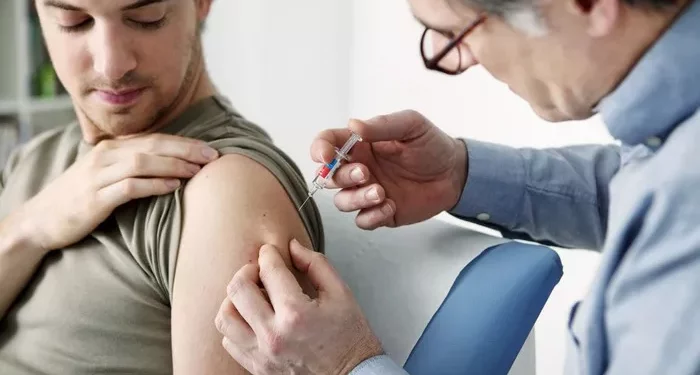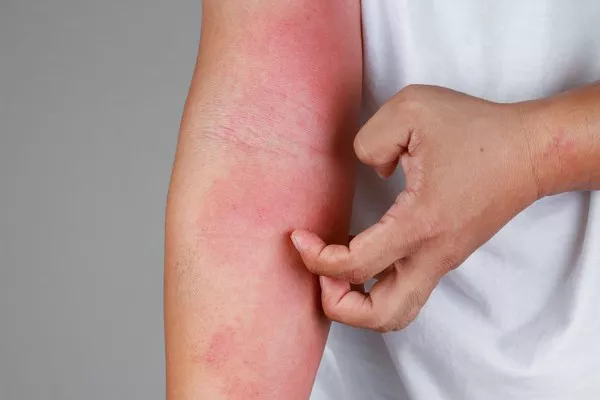Shingles is a painful viral infection caused by the varicella-zoster virus (VZV), which also causes chickenpox. After a person recovers from chickenpox, the virus lies dormant in the body. Later in life, it can reactivate and cause shingles, which typically affects one side of the body in the form of a painful rash. One of the most common questions people have about shingles is how long the virus is contagious and how it spreads. This article will explain the contagious period of shingles, how the virus is transmitted, and ways to prevent spreading it.
What is Shingles?
Shingles, also known as herpes zoster, occurs when the varicella-zoster virus reactivates after lying dormant in the nerve tissue for years. This reactivation typically happens when a person’s immune system is weakened due to factors like aging, stress, illness, or medications. Shingles causes a painful, blistering rash, often along the torso or face, but it can appear anywhere on the body.
The rash starts as small red bumps that turn into fluid-filled blisters. The blisters eventually dry out and form scabs. In addition to the rash, individuals with shingles can experience pain, burning, itching, and even fever. The pain can last for weeks, even after the rash has healed.
How Does Shingles Spread?
Shingles is not as easily contagious as chickenpox. It can only be transmitted to someone who has never had chickenpox or has not been vaccinated against it. However, the virus can be spread from an infected person to others through direct contact with the fluid from the shingles blisters. It is important to note that a person with shingles cannot spread the virus through coughing or sneezing.
The primary way shingles spreads is through contact with the blisters. Once the blisters have scabbed over, the risk of transmission significantly decreases. The virus is transmitted when a person comes into direct contact with the open sores or the fluid within the blisters.
How Long is Shingles Contagious?
The contagious period of shingles begins when the rash first appears, usually in the form of small red bumps, and continues until the blisters dry out and form scabs. This period typically lasts around 7 to 10 days. However, some people may remain contagious for a longer time, especially if their immune systems are weakened.
It is important to note that the virus can be contagious even if the person does not yet have a visible rash. The virus is present in the body before the rash appears and can spread at that time as well, though it is much less likely. Once the blisters crust over and scab, the contagious period generally ends.
Can Shingles Be Spread Before the Rash Appears?
Yes, it is possible to spread the shingles virus before the rash appears. The varicella-zoster virus is active in the body before the rash develops, and the person may be contagious during this phase. This is one reason why it’s important to be cautious and avoid close contact with others, especially individuals who have never had chickenpox or who have weakened immune systems.
Once the rash appears, it is easier to identify the condition and take precautions to avoid spreading the virus. However, since the virus is contagious before the rash appears, anyone with shingles should be mindful of their interactions with others from the moment they begin feeling pain or discomfort associated with the condition.
How Long Does the Contagion Last?
Typically, shingles remains contagious until the rash has crusted over. This can take anywhere from 7 to 10 days, depending on how quickly the blistering rash heals. However, there are instances where the contagious period could be longer, especially in individuals with compromised immune systems.
For those who are healthy and have a normal immune system, the contagious period may last from the onset of the rash until the blisters have scabbed over. This can take around 7 to 10 days. For people with weakened immune systems, it could take longer for the blisters to heal, meaning the person could be contagious for a more extended period.
How Is Shingles Transmitted?
The varicella-zoster virus can be spread through direct contact with the fluid from the shingles blisters. This means that people with active shingles can potentially infect others by touching the open sores or through exposure to the blister fluid. This is why it’s important to avoid touching the rash, and to wash hands thoroughly after coming into contact with the affected area.
If a person who has never had chickenpox or has not been vaccinated against it comes into contact with the shingles blisters, they may develop chickenpox, not shingles. This can occur if the person touches the shingles rash and then touches their eyes, nose, or mouth. Shingles itself, however, cannot cause another person to develop shingles.
Preventing the Spread of Shingles
If you have shingles, it is essential to take steps to prevent spreading the virus to others. Here are some tips to help reduce the risk of transmission:
- Avoid close contact with others – Stay away from individuals who have never had chickenpox, pregnant women, newborns, and people with weakened immune systems. These groups are more vulnerable to the virus.
- Cover the rash – If you have shingles, cover the rash with a loose bandage or clothing to reduce the chances of coming into contact with the blister fluid.
- Wash your hands frequently – Wash your hands thoroughly with soap and water, especially after touching the rash.
- Avoid touching the rash – Try not to touch or scratch the blisters, as this can spread the virus to other areas of your body or to other people.
- Avoid sharing personal items – Do not share towels, clothing, or other items that may come into contact with the rash or blister fluid.
- Stay home while contagious – It’s important to stay home from work, school, or social gatherings until your rash has scabbed over and you are no longer contagious.
Who is at Higher Risk of Getting Shingles?
While anyone who has had chickenpox is at risk of developing shingles, certain groups of people are more likely to experience a reactivation of the varicella-zoster virus. These include:
- Older adults – The risk of shingles increases with age, particularly after the age of 50. This is because the immune system naturally weakens with age, making it easier for the virus to reactivate.
- People with weakened immune systems – Those who have conditions such as HIV, cancer, or autoimmune diseases, or who are on immunosuppressive medications, are more likely to develop shingles.
- Stress – High levels of stress can weaken the immune system, which can increase the likelihood of shingles reactivation.
- People with previous chickenpox infection – Shingles can only occur in those who have previously had chickenpox, as the virus lies dormant in the nerve tissue after the initial infection.
Can You Prevent Shingles?
There is a vaccine available to prevent shingles, known as the Shingrix vaccine. The vaccine is recommended for adults over the age of 50, even if they have already had shingles. It is highly effective at reducing the risk of shingles and can help lower the severity and duration of the disease if it occurs.
For those who are concerned about the contagious nature of shingles, vaccination is an excellent preventive measure. Additionally, getting the chickenpox vaccine as a child can reduce the risk of developing shingles later in life.
Conclusion
In conclusion, shingles is contagious from the moment the rash appears until the blisters crust over. This typically takes about 7 to 10 days, but it can last longer in people with weakened immune systems. It’s important to take precautions to prevent spreading the virus to others, especially to those who have never had chickenpox or who are at higher risk. By staying home, avoiding close contact with vulnerable individuals, and following proper hygiene practices, you can help reduce the risk of spreading shingles.
Related topics



























